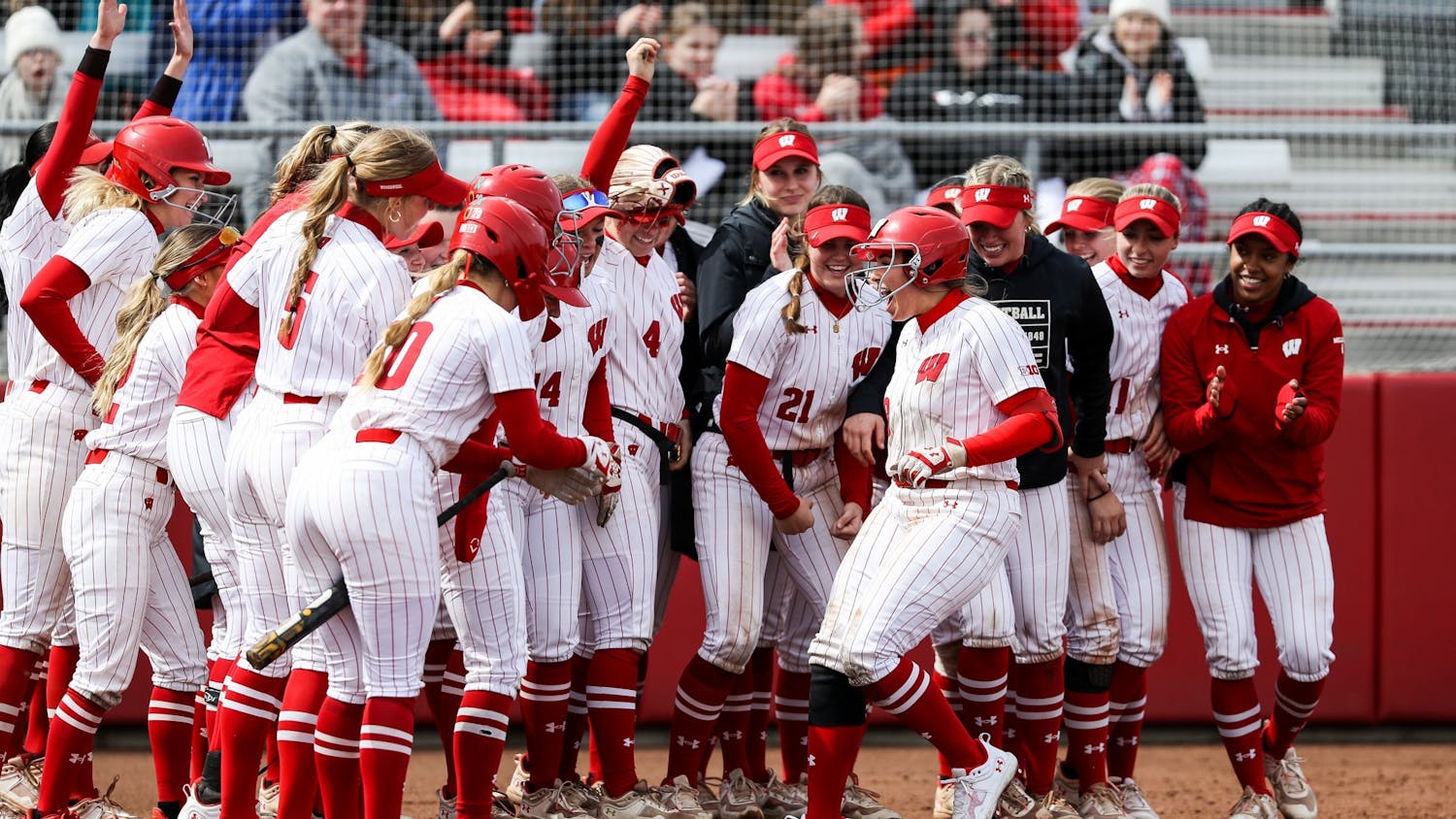When players come to UW-Madison to play football, they want to get onto the field as soon as they can in hopes of becoming the next great player to don the cardinal and white.
Not too many players get to start right away, though. Guys like Lubern Figaro and Chikwe Obasih were able to play big roles as true freshmen last year, but for the dozens of other young recruits, they had to try and find other ways onto the field. For many, their way onto the turf of Camp Randall Stadium is through special teams.
That doesn’t always happen freshman year. Many players get redshirted, and with only 22 starters on offense and defense, that leaves almost 100 other guys all trying to earn playing time on the third phase. Some of those 22 starters play on special teams too, further reducing the number of other players who can get that needed experience on specials.
“If you play on special teams, it allows you to feel comfortable in game situations,” defensive coordinator Dave Aranda said. “It allows you to play faster in a game when you are on the defensive or offensive side.”
Lining up on the coverage teams gives players important repetitions at reading blocks and shedding them as they try to get to the returner. On the return units, players are able to work on blocking and disrupting opponents’ pursuit of the ball carrier. These obviously have benefits for both offensive and defensive players.
“Coming from high school, I never tackled anybody—I was a running back,” redshirt junior safety Leo Musso said. “I didn’t play any defense up until I came here, so special teams was something that definitely helped out a lot.”
It’s easy to see how much of an impact special teams has had for Musso. Up until this season, his fourth year in school, he wasn’t able to see the field much on defense. He only appeared on defense in a few games last season, and he was used very sparingly in those contests. Musso had to prove himself to the coaches in other ways.
“I started on special teams my redshirt freshman year, and it just allowed me to get my feet wet,” Musso recalled. “Thankfully, we’ve had coaches that take special teams very seriously, and it makes your role feel that much more important.”
The safety used his time on special teams to develop his game further, and after an offseason battle, he earned the start on defense Week 1 against Alabama. He didn’t technically start last week against Miami of Ohio, but he did rotate in for a good portion of the game, reeling in two interceptions in the process.
“At the end of the day, it’s just football,” Musso said. “A lot of similar instances arrive, whether it’s special teams or defense, and I think that experience helps a lot.”
Musso isn’t the only safety who used that experience to earn more playing time. Against Alabama, sophomore safety D’Cota Dixon came on for the injured Michael Caputo and played the rest of the game, recording some important tackles in coverage in a losing effort. His play on special teams last year as a freshman was enough for him to not be redshirted.
“There’s nothing like special teams,” Dixon said. “It’s like the same mentality as defense. They say it in different ways, but it’s all the same concept. As long as you get off the block and make the tackle, you can’t say much else.”
“Especially on punt returns, it’s like being a defensive back. It’s more about your feet and hand placement than anything, so that’s what it reminds me of. It’s basically like practicing and working on my technique on jams.”
Whether it be the backups at skill positions or the rotational defenders, the younger Badgers earn time and develop on special teams. Players like Musso and Dixon as well as others like redshirt sophomore tight end Troy Fumagalli and junior linebacker Leon Jacobs now play big roles on the offense and defense, and they all got their starts on special teams early on.
If you want to find the future starters that will uphold the Wisconsin Badgers’ tradition and prestige, look to the guys covering the kicks and setting up returns. It’s where UW greats Jim Leonhard and Owen Daniels got their starts with the team, and it’s how the pipeline of talent grows for UW.





